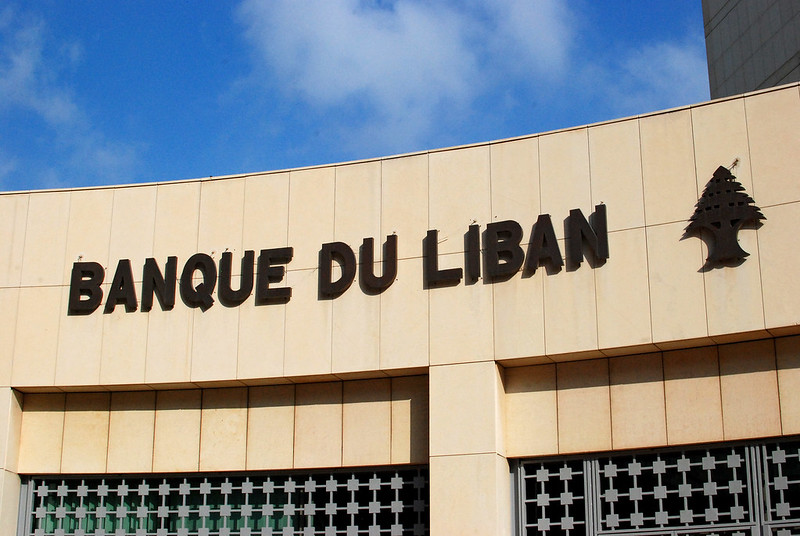While Governor Salameh retires, Lebanon’s central bank remains deadlocked
Amid an unparalleled economic crisis that began in 2019, Lebanon’s top banker leaves under a cloud with charges ranging from lying for years about the country’s accounts to shifting embezzled money abroad. Meanwhile, political and sectarian divisions prevent the appointment of his successor, which requires the approval of Lebanon’s president. According to the International Monetary Fund, the Lebanese currency has lost 98 per cent of its value. Current metrics are in chaotic state.
Beirut (AsiaNews) – Lebanon has been seething in a deep economic crisis since 2019, with draconian banking restrictions preventing depositors from accessing to their money. On Monday, the country reached a new point in this crisis, with the retirement of the governor of the Bank of Lebanon, 72-year-old Riad Salameh.
Once seen as a financial wizard, he now stands accused of leading people down the garden path by making them believe for years in the solidity of the national currency. In office since 1992, Salameh is now associated by many Lebanese with the economic debacle.
Back in February, he announced his intention to throw in the towel, but until the last minute, the authorities believed it was a ploy. Now they have their backs against the wall.
Lebanon’s caretaker cabinet, led by Prime Minister Nagib Mikati, was supposed to meet on Thursday to pick a successor, but opposition from Hezbollah and its Christian ally, the Free Patriotic Movement (FPM), has prevented it. The latter argue that a caretaker government cannot take such a decision.
Lebanon has been without a president since October 2022; as a result, the government can only deal with current affairs.
In the absence of a new governor, the law provides that the first deputy governor (out of four) must take over. The current first deputy governor, Wassim Mansouri, is a Shia, and will hold the post until a new governor is chosen.
The post traditionally falls to a Maronite, but a new appointment will necessarily have to wait for the election of a new head of state, which in turn depends on the success of the mission of President Macron's personal envoy, Jean-Yves Le Drian, who has just made a second visit to Lebanon.
Reacting to the alarming comments by some economists, who fear that Salameh's departure might push the US dollar to new highs, the governor made reassuring remarks yesterday.
“As I leave and despite the crisis that was expected to create a total collapse, the central bank could through monetary initiatives contain this crisis," he said in comments to Reuters.
Unfazed, Salameh went on to point out that Lebanon's economy grew by 2 per cent last year and could reach 4 per cent this year, but he did not provide more specific metrics.
According to the International Monetary Fund, the economy’s implosion caused the national currency to lose about 98 per cent of its value, with GDP contracting 40 per cent and inflation reaching triple-digit.
After threatening to resign collectively, needlessly sowing alarm in the public, the four deputy governors were authorised by the government to disburse US$ 200 million a month for civil service salaries and subsidised drugs.
They four are calling for the implementation of crucial reforms required by the International Monetary Fund (IMF), including the restructuring of the banking sector and capital control legislation. However, the country’s political elite continues to resist reform measures, casting a long shadow over the future.
The agreement in principle reached in April 2022 with the IMF would bring US$ 3 billion in aid, spread over four years, but conditional on the implementation of reforms. The recovery plan could give small depositors access to their accounts up to 0,000, while spreading losses among large depositors and shareholders of banks.
By refusing this, the latter condemn hundreds of thousands of Lebanese to cope with the fluctuations of the local currency on the black market, and a multiplicity of exchange rates, including that of the Bank of Lebanon (Sayrafa), which is slightly lower than that of the black market.
Experts see this as insider trading and slam plans by the central bank to inject dollars from reserves, which will mainly benefit large fortunes.
The governor of the central bank is also under investigation in five European countries for embezzling hundreds of millions of dollars from the Lebanese state and for laundering these funds abroad.
Since he rejected a summons by French Judge Aude Buresi, vice president of the Paris Judicial Court, to appear for a hearing, he is now under an Interpol arrest warrant.
13/08/2021 12:53
04/11/2022 19:38
27/04/2020 16:59







.png)










